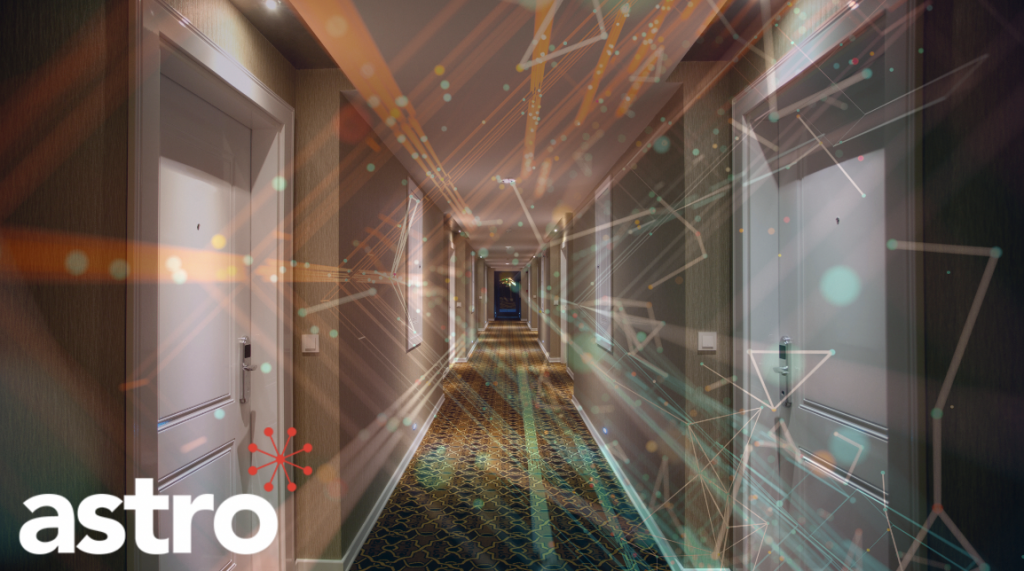
In any business, moving with the times is imperative for success. For hotels, it’s essential for survival.
Many hotels and hospitality businesses have been left fragile after the disruption of the COVID-19 pandemic, and now ahead of a recession hotels are facing continued challenges. Hotels must also be able to recover financially from a pandemic and build financial resilience into their operations so that they can attract customers whose travelling and spending habits have changed.
To create a positive guest experience, hotels need to be able to provide consistent service that gives guests what they expect. This results in an almost universal need for more reliable and efficient IT infrastructure.
In this blog, we will explore essential hospitality industry tech trends and how technology will take hotels from fragile to agile.
Essential hospitality trends for the hotel industry
Hotels need to be able to use technology to solve their unique problems: creating a better guest experience, enhancing their marketing efforts, improving their operations and more.
While some hotels have begun adopting technologies like artificial intelligence (AI) and machine learning to automate basic tasks, many are still struggling with how best to use these new technologies. This is especially true for smaller properties that don’t have in-house IT resources or staff trained in AI/ML programming languages. Nevertheless, the adoption of automation in the hotel industry is now essential. Automation and AI can help hotels achieve higher efficiency in various ways.
Leverage data to optimise guest experience and performance.
Data is valuable. It can be used to improve the guest experience, operational efficiency and even marketing and sales. With a well-designed IT infrastructure that leverages data, hoteliers can use their investments wisely in multiple ways. Examples of how data can be collected and utilised:
Advanced revenue management systems
They can improve revenue per available room (RevPAR) by providing a better understanding of the market. You can achieve this through predictive analysis and machine learning, which provides more accurate insights into booking patterns and demand than traditional forecasting models. Automation can also help hotels reduce labour costs by automating repetitive tasks such as cleaning rooms, replenishing supplies and performing maintenance tasks.
Smart buildings
The emergence of the smart building is a game changer for hotels, as it allows them to provide their guests with an enhanced, seamless, personalised experience. From allowing guests to control their own lighting/temperature/entertainment, to improving the guest experience by providing real-time information about amenities and facilities available in the hotel. Smart buildings can also provide insight into guest behaviour and preferences, as well as monitor energy consumption and reduce costs.
Understand and deliver on the communication and connectivity needs of your guests

Connectivity
Guests expect WiFi that’s always available, secure, and high performing. Not only does Wifi make the world go round, and enable most of your business functions, hoteliers looking to differentiate themselves in an increasingly competitive market segment NEED to deliver exceptional connectivity for their guests at all times.
Bandwidth is king – research shows that hotel guests now bring multiple devices with them when they travel, and hotels must have the right network infrastructure to support this growing demand. Wireless connectivity is a must, and Wifi 6 is the next step in wireless connectivity. It offers more capacity, higher speeds and better connections than Wifi 5, making it ideal for hotels with a large number of guests all using their mobile devices to access social media, stream content and make purchases.
Security
It goes without saying that where you have huge numbers of devices all sharing a WiFi connection that cybersecurity is a massive challenge for hotels. The wireless network is a virtual goldmine for cybercriminals, so it’s vital to have the right security measures in place. Wifi 6 provides even more protection than Wifi 5, and with new features like extended authentication methods (EAAS) and robust data encryption, hotels can be assured their guests are protected against any hacker attacks.
Communication
Embrace messaging, instead. The shift to digital communication is natural and the customer’s ability to communicate how THEY want massively impacts their experience. Hotel guests don’t want to download your app, and they don’t want to have to call you or worse, come and queue up to talk to you. Your guests are already using their preferred messaging apps like WhatsApp and Facebook Messenger; why not meet them there?

Invest in NFC technology
The more you can provide a seamless experience, the better. NFC technology is a great way to improve this. It allows you to connect with your guests without them having to download an app or even know about it. Not only can you offer contactless payments, and contactless check-in and check-out procedures, you can give guests what they need without them even asking. Book conference facilities, add items to their bill, and access meeting rooms or leisure facilities without having to carry anything but their smartphone. You can use NFC tags on your hotel room doors, for example, which allow you to send key information such as Wi-Fi passwords and other details directly into each guest’s phone as they enter their room.
To facilitate innovation, what must hotels do with their IT infrastructure?

Hotels need to reduce their reliance on legacy systems and applications, which can be difficult for a large enterprise. But the benefits of doing so are significant. By modernising their IT infrastructure, hotels can reduce costs, increase productivity and improve service levels for guests.
Engage the right kind of network design and management partner for your hotel
To support these sophisticated technologies, you need a robust IT infrastructure that’s specifically designed for the needs of your environment. Hotels should outsource network design and infrastructure management to a professional firm that has significant experience in the hospitality sector. This will ensure that your network is designed and configured to meet the specific needs of hotels, rather than those of other business types. The firm should also provide ongoing management services so you don’t have to worry about whether your systems are efficient or secure.
For a real-life example of how we could help you achieve digital transformation, check out our case study for Elite Hotels.


